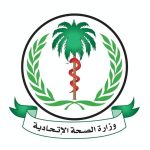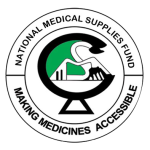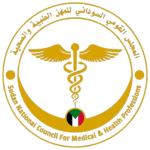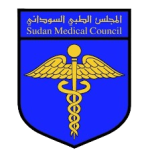About Faculty of Medicine and general surgery
Faculty of Medicine Objectives and Mission
The objectives of a Faculty of Medicine and Health Sciences typically include:
1. Education and Training: To provide high-quality education and training programs that prepare students for careers in healthcare professions such as medicine, nursing, pharmacy, dentistry, and allied health fields.
2. Research and Innovation**: To conduct innovative research that advances medical knowledge, improves patient care, and contributes to scientific discovery in areas relevant to health and medicine.
3. Clinical Excellence: To promote clinical excellence through rigorous clinical training programs, partnerships with healthcare institutions, and opportunities for hands-on learning under supervision.
4. Community Engagement: To engage with and serve the community through health promotion initiatives, outreach programs, and partnerships that address local healthcare needs and disparities.
5. Interdisciplinary Collaboration: To foster collaboration across disciplines and professions, promoting a holistic approach to healthcare delivery and addressing complex health challenges.
6. Global Health Impact: To contribute to global health initiatives through research, education, and partnerships that enhance healthcare systems and improve health outcomes worldwide.
7. Professional Development: To support the ongoing professional development of faculty members, healthcare professionals, and researchers through continuing education programs and opportunities for career advancement.
These objectives collectively aim to uphold high standards of education, research, and clinical practice within the healthcare field while advancing the faculty’s role in improving health and well-being at local, national, and international levels.
The mission of a Faculty of Medicine and Health Sciences typically revolves around the following principles:
1. Education: To provide comprehensive and cutting-edge education that prepares future healthcare professionals with the knowledge, skills, and ethical standards necessary to excel in their fields.
2. Research: To conduct impactful research that expands medical knowledge, addresses health disparities, and leads to innovations in healthcare delivery and patient outcomes.
3. Clinical Care: To promote excellence in clinical care through rigorous training programs, partnerships with healthcare institutions, and patient-centered approaches that prioritize quality, safety, and compassion.
4. Community Service: To engage actively with local and global communities through outreach initiatives, health education programs, and partnerships that address public health challenges and improve community well-being.
5.Interdisciplinary Collaboration: To foster collaboration across disciplines and professions, promoting teamwork and innovation in healthcare practices and research.
6. Global Health: To contribute to global health initiatives through research, education, and partnerships that enhance healthcare systems and address global health disparities.
7. Leadership and Advocacy: To cultivate leaders in healthcare who advocate for policies and practices that promote health equity, patient-centered care, and the well-being of communities.
Overall, the mission of a Faculty of Medicine and Health Sciences is to advance knowledge, promote health, and educate future leaders in healthcare through excellence in education, research, clinical care, community engagement, and global health impact.
More Information About Faculty of Medicine
Faculty of Medicine and Health Science does not require obtaining any previous qualification, as the college accepts (everyone who has the desire to teach and learn, and they are: University, illiterate, and craftsmen. Age is not required in admission.
The study plan for the curriculum is an academic year, from six months to one year, and courses and short courses vary according to the program of the target group.
Degrees offered by a Faculty of Medicine and Health Sciences hold significant academic value due to their rigorous curriculum, practical training, and alignment with professional standards in healthcare. Here are key aspects that contribute to the academic value of degrees from such faculties:
1. Comprehensive Curriculum: Degrees in medicine, nursing, pharmacy, dentistry, and allied health fields typically involve a comprehensive curriculum that covers foundational sciences, clinical skills, and practical experience. This ensures graduates have a solid academic foundation and are well-prepared for professional practice.
2. **Clinical Training**: Practical training in clinical settings is a core component of these degrees, providing students with hands-on experience in diagnosing and treating patients under the guidance of experienced professionals. This clinical exposure is crucial for developing competence and confidence in healthcare delivery.
3. Accreditation and Recognition: Faculties of Medicine and Health Sciences often seek accreditation from national and international accrediting bodies, ensuring their programs meet established standards of quality and excellence. Accreditation enhances the credibility and recognition of degrees awarded by these faculties.
4. Interdisciplinary Learning: Many programs encourage interdisciplinary learning, allowing students to collaborate with peers from diverse healthcare professions. This fosters a holistic understanding of healthcare delivery and prepares graduates to work effectively in multidisciplinary healthcare teams.
5. Research Opportunities: Faculties of Medicine and Health Sciences offer opportunities for students to engage in research projects, contributing to advancements in medical knowledge and developing critical thinking and research skills.
6. Professional Development: Degrees from these faculties include opportunities for professional development, such as continuing education programs, certifications, and licensure exams that are essential for career advancement and maintaining competence in the field.
7. Career Opportunities: Graduates from faculties of Medicine and Health Sciences are well-positioned for diverse career opportunities in healthcare settings, research institutions, academia, public health organizations, and government agencies. The specialized knowledge and skills acquired through these degrees are highly valued in the healthcare industry.
Overall, degrees from a Faculty of Medicine and Health Sciences offer robust academic value by combining theoretical knowledge with practical experience, preparing graduates to make meaningful contributions to healthcare and improve patient outcomes.
About Faculty Medicine and general surgery
The About Faculty Medicine and general surgery typically encompasses various academic disciplines related to healthcare, medical education, and research. Here are some key aspects commonly associated with such faculties:
1. Medical Education: The faculty offers undergraduate and postgraduate programs in medicine, nursing, pharmacy, dentistry, and allied health professions. These programs focus on theoretical knowledge, clinical skills training, and practical experience to prepare students for professional practice.
2. Research and Innovation: Faculty members and researchers conduct studies aimed at advancing medical science, improving patient care, and addressing healthcare challenges. Research may cover a wide range of fields such as biomedical sciences, public health, epidemiology, and healthcare policy.
3. Clinical Training: Many faculties of medicine and health sciences have partnerships with hospitals, clinics, and healthcare facilities where students receive clinical training under supervision. This hands-on experience is crucial for developing practical skills and applying theoretical knowledge in real-world settings.
4. Interdisciplinary Collaboration: Faculty members often collaborate with professionals from diverse backgrounds, including scientists, clinicians, public health experts, and policymakers. This interdisciplinary approach promotes comprehensive healthcare solutions and innovations.
5. Community Engagement: Faculties of Medicine and Health Sciences often engage with local communities through outreach programs, health promotion initiatives, and partnerships with community organizations. This involvement helps address healthcare disparities and promote public health.
6. Continuing Education: Many faculties offer continuing education programs and professional development opportunities for healthcare professionals to stay updated with advances in medical knowledge, technology, and practices.
Overall, the Faculty of Medicine and Health Sciences plays a crucial role in training healthcare professionals, conducting cutting-edge research, and contributing to the improvement of healthcare delivery and outcomes both locally and globally.




